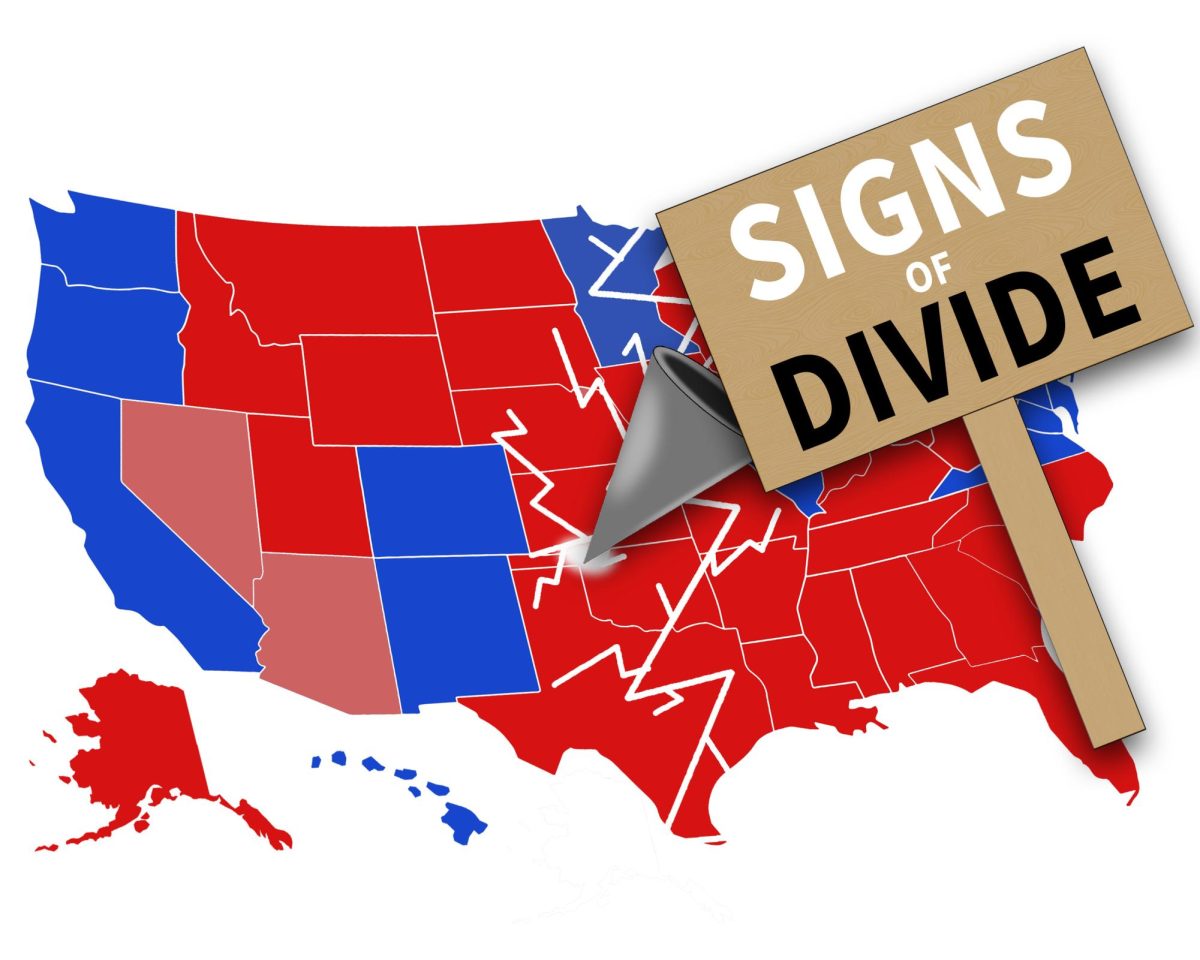Director Christopher Nolan continues to set standards with his new drama/biography “Oppenheimer.”
During World War 2, physicist Robert J. Oppenheimer, played by Cillian Murphy, was selected by Lt. Gen. Leslie Groves Jr., played by Matt Damon, to work on the top-secret Manhattan Project. Over several years, Oppenheimer gathers some of the best scientists to work on the world’s first atomic bomb.
I do not think there is a lot that could be better with the film.
To start, I have seen this film three times. It was an interesting story to tell, and Nolan told it in a special way. Going into it, I was expecting just the making of the bomb, but that idea vanished after a few minutes of the movie starting.
Going into the film, I was very ignorant on mostly everything. I knew about the bomb in general and where it dropped. Mostly everything else I was uninformed about.
Shortly after watching, I had an urge to go out and just learn, maybe to understand it as a I was watching it. At the same time, though, it was interesting to learn as I was watching it.
Nolan started the film with Oppenheimer in an interrogative setting with men in suits. This setting plays an imperative part in the film towards the last hour of the film, which will be talked about later.
The casting was great. It was very surprising see how many actors and actresses were in there, and there were even some unexpected appearances.
Playing Harry S. Truman, Gary Oldman was one of the surprises. It was hard to depict who he was at first due to the costume.
Another pleasant surprise appearance was by Josh Peck, who played Kenneth Bainbridge. Peck played a significant in young adults’ lives by playing Josh Nichols in the Nickelodeon TV show “Drake and Josh.”
Someone else who had this same effect on young adults’ lives who had a role in Oppenheimer was Devon Bostick. Bostick is known for his role as Rodrick Heffley in the Diary of a “Wimpy Kids” films.
Aside from side characters, the main characters could not have done a better job.
I am not a fan of Robert Downey Jr. His demeanor as Iron Man, and seeing that he incorporated that personality, which might be how he is in real life, into the little snippets of his interviews that I have seen gave me enough information about him to form an opinion.
With that said, his character in this film was exceptional. The twist that came with his character was unforeseen and the way he acted in general was great. Downey Jr. acknowledged that Nolan challenged him in acting in ways that he was not familiar with in an interview with Vanity Fair.
Emily Blunt played Kitty Oppenheimer, Oppenheimer’s wife. Her performance was great as well. Her emotional scenes were not overdone, and it was very realistic which conveyed audience members to feel for her, even though she did not have that big of a role.
Florence Pugh played Jean Tatlock, Oppenheimer’s mistress. This relationship was a bit on the back burner as far as how important it was to the plot. It was something interesting to have for a side story though.
The story did come back around towards the end of the movie, but it still was not that important.
And finally, the man himself, Cillian Murphy played Robert J. Oppenheimer. What a performance. This film makes it the sixth collaboration between Murphy and Nolan, the first one dating back to 2005 with Batman Begins.
There was a substantial amount of pressure put onto Murphy going into this movie, but he did a fantastic job with this role.
After reading some articles, they summed up to saying that his performance was accurate for the most part, except the beginning where he poisoned an apple and that he never cursed.
Other than that, his dialogue was great and the subtle remarks/attitude with others added onto my admiration for his character.
The audience saw how much work was put into building the bomb, but I loved how shortly after we get to see Oppenheimer’s conscience kick in and he realizes what he made.
It is not dragged on either, we get it for a few minutes towards the end of the second hour when the bomb is built and when it is dropped, and a few glimpses of it throughout the third hour.
It allows the film to not be seen as Nolan trying to glorify the bomb, which is a way some viewers could have seen it, as opposed to a historical movie.
What is interesting is that Nolan said he writes without having any actors in mind.
In an interview with IMDb, Nolan said that if he has actors in mind, basing them off of performances in other movies, then it will not allow him to challenge them in new roles.
I was able to watch the film in 70mm and in the middle seats, the recommended setting to watch the film according to Nolan. I expected something really captivating watching in 70mm, but it was not that different. The quality was not the best, as expected since it was shot on film.
Having the effect to show it in the quality that was available during that time allowed the audience to be a part of the film as much as possible. I really tried to pay attention to the sound quality, and for the most part it sounded great.
There were some times where I could not understand what some characters were saying, mostly due to the mixing between the music and dialogue.
When the bomb went off I was in pure shock and a little bit confused. When the bomb exploded there is no sound for what feels like forever, and we only see the light, but light travels faster than sound and Nolan emphasized that, which was outstanding.
Then once the noise of the bomb comes in it is just gripping. I really wish it went on for a little bit longer though, maybe just to be in that highly anticipated moment more.
Some audience members think that there was a loss of tension after the explosion went off, which is somewhat true. There was nothing else to look forward to, but the story line still held up nice.
As stated earlier, the interrogation scene comes back in the third hour of the movie to finish it off and it did not feel forced either since it was already established. There were character arcs and twist in character motives which kept the film fresh.
What was fascinating about the film was that the subjective scenes were shown in color and the objective scenes were shown in black and white.
It never felt like the movie was three hours long since there was so much happening.
Nolan typically teams up with music composer Hans Zimmer for his soundtracks, but he decided to work with Ludwig Göransson again, as they worked together for Nolan’s 2020 film, Tenet.
Göransson has worked on several big-name movies including both “Black Panther” films, “Creed” and “Creed 2”, and more.
The music went simultaneous with the scenes and worked beautifully.
The ending leaves audience members with an uneasy feeling.
Oppenheimer’s last dialogue is with Albert Einstein, played by Tom Conti.
Einstein tells Oppenheimer about how everyone cheers on someone else’s accomplishments only to feel good about themselves until it is time for their downfall. These final lines are to let Oppenheimer know about what is to come and how everyone cheering him at the moment.
Oppenheimer last lines with Einstein read:
“When I came to you with those calculations,” Oppenheimer tells Einstein, “we thought we might start a chain reaction that might destroy the entire world.”
“What of it?” Einstein asks.
“I believe we did,” Oppenheimer says.
It leaves goosebumps on the skin knowing the after-effect of the bomb.
The movie is amazing and highly recommended. It tells an interesting story of the father of the atomic bomb in a high quality presentation.
Rate: 5/5
Cam’ron Hardy can be reached at cahardy@eiu.edu or 217-581-2812.






































































